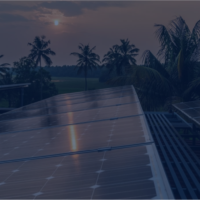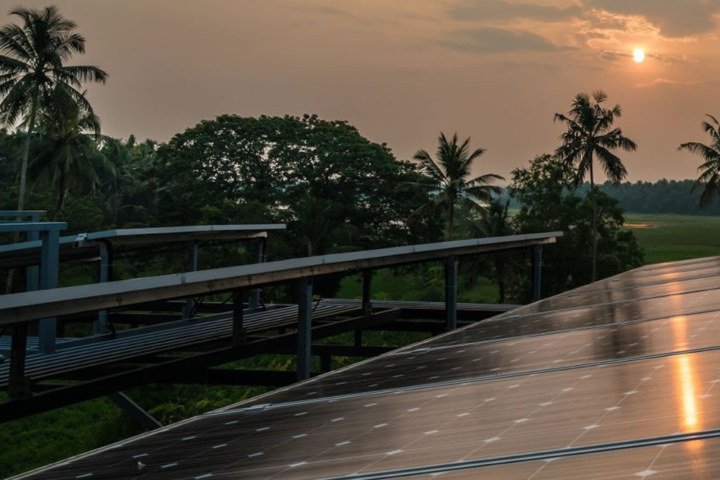Your Project Proposal
The main document for your project application is the Project Proposal: a concise and credible plan that is straightforward and easily understood by evaluators and reviewers. It should provide enough detail to give evaluators a clear idea of your project’s rationale, structure and management, investment ask, returns and risks as well as climate benefits and any developmental, social and gender impacts.
Please follow our guidelines to help you define your project more clearly and convince others, including PFAN, that your project is worth working with. It is not necessary to address every question or item in the guidelines – elaborate on those relevant to your project and for which you have information available. Any areas requiring further work will be covered during the coaching PFAN offers to selected projects.
TESTTESTTESTTESTTESTTESTTEST TESTTE STTESTTESTTE STTESTTEST TESTTESTTESTTESTTESTTESTTEST TESTTESTTESTTESTTESTTESTTEST TESTTESTTESTTESTTESTTESTTEST TESTTESTTESTTESTTESTTE STTESTTESTTESTTESTTESTTESTTESTTEST TESTTESTTESTTESTTESTTESTTESTTESTTESTTESTTESTTESTTESTTESTTESTTESTTESTTESTTESTTESTTEST TESTTESTTESTTESTTESTTESTTEST TESTTESTTESTTESTTES TTESTTESTTEST TESTTESTTESTTESTTESTTEST TESTTESTTESTTEST TESTTESTTEST TESTTESTTESTTESTTESTTESTTEST TESTTESTTESTTES TTESTTESTTEST

Please follow our guidelines to help you define your project more clearly and convince others, including PFAN, that your project is worth working with. It is not necessary to address every question or item in the guidelines – elaborate on those relevant to your project and for which you have information available. Any areas requiring further work will be covered during the coaching PFAN offers to selected projects.
Please note the following:
- The Project Proposal document should be maximum 20 pages long (excl. annexes), in MS Word or PDF format (.doc or .docx or .pdf) and a maximum of 20MB. Other formats, such as PowerPoint slide decks, are not accepted.
- Proposals exceeding the data or page limit or submitted in other file formats than those provided above may be disqualified.
- Please ensure the information in the Project Proposal is in line with the information provided in the online application form and other files submitted (such as the Financial Model and Executive Summary).
- Ensure the Project Proposal is factual and realistic. Document your claims and proposals where possible and provide supporting data, using diagrams, charts and graphics where appropriate.
Guidelines for your Project Proposal
Ownership structure (Who)
Is it a build-operate-transfer project, a privatisation, a green field project, a scale up of existing operations? What is being done, offered, acquired, sold and distributed? What are the goals?
What problem is being solved/addressed by your company/project?
Local/domestic? International? Barriers to entry?
What are the opportunities and threats, the existing physical, logistical and commercial infrastructure in place, the status of regulatory environment?
Who are they (private, public, local, int.)? What are your company/project’s competitive advantages over other market players? This is especially important for investors.
Estimated demand for your product or services
Testvideo
Testdesc
The Private Financing Advisory Network is a global network of climate and clean energy financing experts that aims to bridge the gap between entrepreneurs developing climate and clean energy projects and private sector investors.
As technology prices continue to fall, clean energy projects become more profitable and the appetite of investors for such projects grows. Now is a time of enormous potential for the development of clean energy capacity around the world. There are many entrepreneurs out there with great ideas for clean energy and climate adaptation projects that are economically viable. However, especially in low- and middle-income countries, the projects and the investment tend to have difficulty finding each other:
- Entrepreneurs simply may lack the connections to find investment, or may be unsure of what investors look for in a business plan
- Investors may find it difficult to assess investment opportunities in markets they are not familiar with
PFAN bridges this gap by helping entrepreneurs build their businesses and present them in a language which investors will understand and be interested in. We then help investors find and recognise the potential of these businesses.
A rapid scale-up of investment in clean energy generation capacity is required to replace energy generation based on fossil fuels and avoid the worst impacts of climate change. At the same time, significant investment will have to flow towards increasing the resilience of vulnerable populations and helping them to adapt to the changes already here and those still to come.
Governments alone will not be able to provide enough investment to achieve the impact required. Unlocking private sector finance in support of climate action is one of the main challenges that governments, international organisations and development banks have been grappling with since the Paris Agreement entered into force. PFAN has been tackling this challenge since 2006, using small amounts of public funding to leverage large amounts of private sector investment for clean energy and climate resilience projects in low- and middle-income countries.
We aim to build clean energy markets one business at a time, mitigate climate change and mobilise private investment in support of the Paris Agreement on Climate Change and the Sustainable Development Goals. While combating climate change is our ultimate goal, in its day-to-day work PFAN is driven by a desire to help entrepreneurs succeed. We know that getting a project off the ground is difficult; we are aware of the barriers faced by project developers, especially those linked to accessing additional investment. Helping entrepreneurs overcome those barriers to fulfil their potential and contribute to climate change adaptation and mitigation is what drives us.

PFAN bridges this gap by helping entrepreneurs build their businesses and present them in a language which investors will understand and be interested in. We then help investors find and recognise the potential of these businesses.

Test
We aim to build clean energy markets one business at a time, mitigate climate change and mobilise private investment in support of the Paris Agreement on Climate Change and the Sustainable Development Goals. While combating climate change is our ultimate goal, in its day-to-day work PFAN is driven by a desire to help entrepreneurs succeed. We know that getting a project off the ground is difficult; we are aware of the barriers faced by project developers, especially those linked to accessing additional investment. Helping entrepreneurs overcome those barriers to fulfil their potential and contribute to climate change adaptation and mitigation is what drives us.

Governments alone will not be able to provide enough investment to achieve the impact required. Unlocking private sector finance in support of climate action is one of the main challenges that governments, international organisations and development banks have been grappling with since the Paris Agreement entered into force. PFAN has been tackling this challenge since 2006, using small amounts of public funding to leverage large amounts of private sector investment for clean energy and climate resilience projects in low- and middle-income countries.
